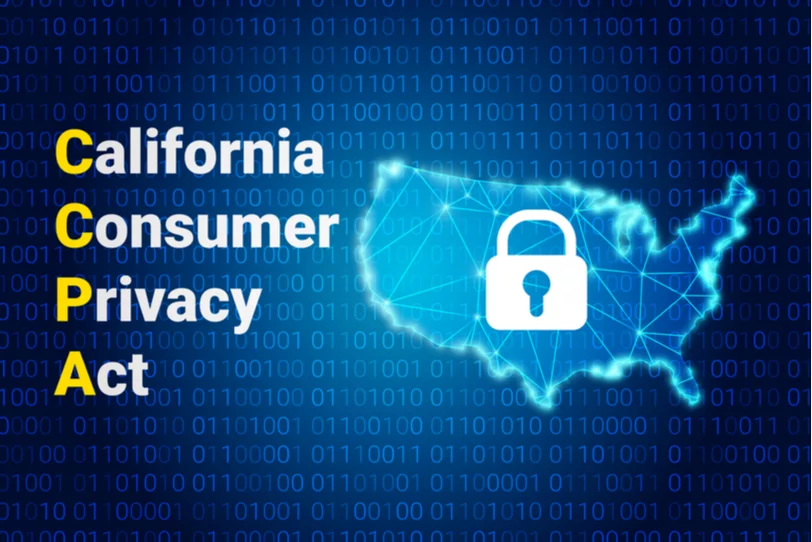
Companies that are in Europe have to follow GDPR policy. After the GDPR, many governments are reviewing their data privacy policy. Every government is trying its best to protect its citizen’s privacy. In California, the government has finally passed the CCPA or California Consumer Privacy Act.
Many people are also referring to it as the California GDPR. However, you should understand everything about this act. Also, you need to understand the difference between the GDDR and CCPA. In this article, we are going to talk about CCPA.
What is CCPA?
CCPA law was passed by the California government in 2018. It is the first attempt by any US state to protect its citizens’ rights. They are trying their best to protect the data of their citizens. Before CCPA, companies were not informing the people about the data they are collecting. Also, they were not legally obligated to tell the usage of this data. Organizations can still collect their data from public documents. However, they can’t collect data that can be used for identifying California residents. Also, they can’t sell any data without their consent. This data could range from browsing history to social media data. Also, it contains biometric and location-based data. California residents can also request companies to delete their data.
However, this law is not limited to California only. Most rights of this law apply only to the citizens of California. But, it is one of the largest USA state. Thus, most companies are dealing with their data. You don’t need to develop a policy for every specific state. It is better to develop strong data privacy policies. This will ensure that you are compliant with most of these data laws. Many other states are also working on data privacy regulations. Thus, you are going to see more laws like CCPA in the future.
GDPR vs CCPA
Many companies think that CCPA is very similar to the GDPR act. There are many things that are similar to these policies. However, the CCPA act is not strict like the GDPR act. GDPR act is dealing with European Union resident’s data. Thus, the laws are stricter when compared to CCPA. GDPR is forcing companies to take permission from the users before collecting their data. However, CCPA is not stopping any company from collecting data. You can collect data without any worries. However, you can’t sell this data without taking appropriate permission.
GDPR is applicable to any enterprise that is collecting data. However, CCPA focuses mainly on some businesses. Thus, most companies don’t need to worry about the CCPA act. Also, the penalty is different in both acts. GDPR regulators can fine you for not complying with their laws. Also, their fine has an upper limit of 22 million euros. Thus, it is more expensive when compared to the CCPA penalty. CCPA will only fine you after any data breach occurs.
CCPA Checklist
You can take some steps to ensure that your company is following CCPA regulations. These steps will help you in protecting your data.
-
Create a map
If you are collecting data from your customers, then you must where this data is stored. Also, you should know where this data is flowing in your infrastructure. It is important to map the flow of your customer data. If you have a map of your data flow, then you can easily handle your data.
-
Better Data Security Controls
This should be the main priority for any enterprise. You can use this opportunity to check your data security policies. Also, you should manage your access list. It is best to use ISO 27001 standards for checking the security level of your organization. This will help you in finding potential vulnerabilities in your network.
-
Time to update your privacy policy
Organizations need to inform their users about their rights. Thus, it is the perfect time to update your privacy policy. This privacy policy should be available on your physical stores and website. The law also contains some provisions for minors. Thus, you need to verify the age of your customers before collecting their data.
-
Teach your Employees
If you are changing your security policy, then you should educate your employees first. You should tell them about the new data security guidelines. Also, you need to tell them about the importance of these guidelines. If your employees know about CCPA policy, then it will reduce their confusion. Thus, they can easily adapt to new security policies without any disruption.
-
Store Consent Records
It is important to separate your records in two different categories. You should know which users don’t want to sell their data. If someone doesn’t want to sell their data, then you can’t sell their data for the next year. After that, you need to ask them again. It is important to make sure that this data is ready. This will help you in complying with the CCPA policy.
Conclusion
Governments are trying their best to protect their citizen’s data. Thus, they are creating separate data policies for their own state. If you are handling the data of California residents, then you need to follow CCPA compliance. You can also work with colocation centers. They are already complying with the GDPR policies. Thus, you don’t need to worry about adapting your infrastructure to the CCPA requirements. CCPA policies are going to change with time. Thus, it is best to work with a third-party provider. They will ensure that you are meeting the current standards. You should also try to strengthen your security policies. If you have a strong data protection policy, then you don’t need to worry about most of the compliances. Thus, it is always a good idea to invest in your infrastructure security. If you want more information regarding CCPA compliance, then you can contact Bleuwire.
Contact us today to learn about Bleuwire™ services and solutions in how we can help your business.





